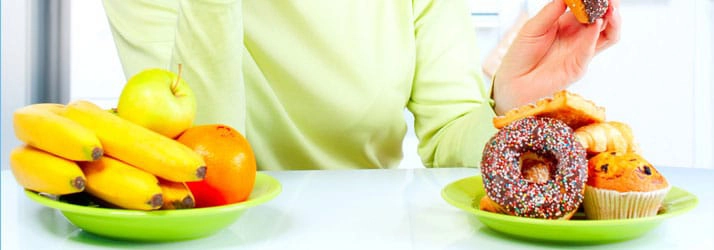Tuesday's Q&A in Lafayette LA - 6/03/14

Juice cleanses, juice bars, late night ads for juicing machines and the occasional celebrity endorsement all seem to be fueling a national juice-drinking craze. Fruit is healthy and fruit juice is a fast and convenient way to drink your nutrients, so what could possibly be wrong with a daily dose of orange, apple or cranberry juice or a trendy juice cleanse? A LOT. While we like the idea of drinking a pre-packaged green vegetable juice, most of them contain too much fruit and therefore: Too Much Sugar. Hello, morning orange juice drinkers! Dr. Frank Lipman shares how fruit juice seriously undermines your health in Lafayette LA - and why you should quit the stuff:
1. Think of Your Morning O.J. as Soda - Minus the Bubbles
OK, so you swapped your favorite sugary soda for cranberry juice, thinking that it's better for you. Though I applaud the effort to ditch the soda, replacing it with a fruit juice sugar-bomb is a lateral move. Unfortunately, most fruit juices - be they organic or otherwise - flood your body with just as much sugar as soda pop. For example, the average 12 oz. soda contains roughly 35 - 45 grams of sugar. The same amount of orange juice comes in at about 30 grams; apple delivers about 40 and pomegranate juice can top 45 grams. That is simply an insane amount of sugar to consume at one sitting, no matter what type of beverage it is. What's an acceptable amount of sugar intake? Ideally, no more than 10 grams a day at the most, which certainly takes fruit juice off the table!
2. There's Nothing to Chew On
Converting whole fruit into liquid requires a lot of processing. Along the way, the once healthy fruit gets pasteurized, pulverized, filtered, pureed and stored in massive vats for months at a time - all of which chips away at the nutrients, vitamins and belly-filling fiber the fruit started out with. Then, they pump the liquefied fruit full of sugar. All that added extra sugar spikes your blood sugar because there's no fiber to slow its release into the blood stream. Next, you get the crash, followed by hunger and cravings, none of which you'd experience had you eaten the whole fruit instead. And be aware of clever marketing claims. No matter how they parse it, a glass of juice - with "pulp" or without, organic or otherwise - is not nutritionally equivalent to whole fruit, nor will it ever be. Remember, fruit juice consumption is not an acceptable short-cut on the road to good health - it's more like the highway to health problems - so grab a real, whole, organic piece of fruit and start chewing!
3. How About a Tall Glass of Diabetes and Heart Disease?
Another problem with a diet that's heavy on fruit juice? Recent studies have indicated that it's linked with increased insulin resistance and diabetes risk, whereas whole fruit consumption appears not to have the same health-eroding effect. Fruit juices aren't kind to your ticker either, according to one Harvard study. In it, researchers reported that daily doses of sugary drinks boosted heart disease risk in men. Fruit juices fall under the sugary drink umbrella, so my advice is to avoid all of them if you want to keep your heart, insulin levels, and waistline in check.
4. Hope You Like Going to the Dentist
If sugar highs and lows, increased insulin resistance, heart disease and diabetes risk weren't enough of a disincentive, then at least consider your teeth. The acids in fruit juices, not to mention the mounds of sugar, can take a big bite out of your tooth enamel, resulting in weak spots that can blossom into costly cavities, which will eventually need fixing. If the damage is significant enough, tooth bonding or crowns might also be needed to patch up the mess, so your wallet takes a hit as well. At that point you need to ask yourself if a fruit juice habit is really worth the damage, hassle and expense. Didn't think so.
5. Did You Know 12 Oranges Died to Make Your Glass of Juice?
In other words, it takes a heck of a lot of raw fruit materials and resources to produce a bottle of juice. Considering the resources used to fuel industrial farming operations - the pesticides, the millions of gallons of water for irrigation and the trucking all that fruit and juice - your morning beverage gives the earth a black-eye as well. Once again, you have to ask, is it worth it to batter your external and internal environments just for a fix of bottled sugar water?
This week's recipe, in lieu of cutting back on fruit sugars…
Sweet potatoes provide a satisfying sweetness but won't spike your blood sugar like other types of potatoes. They're also packed with nutrients, including vitamin A, vitamin C, potassium, iron, magnesium, and calcium. Can you tell where this is going? Sweet potatoes make a surprisingly delicious smoothie (almost with an ice cream like consistency!) that is satisfying, delicious, and provides an antioxidant and anti-inflammatory boost.
Sweet Potato Smoothie
Ingredients
I suggest using organic whenever possible
- ½ cup sweet potato, cooked and mashed (no skin)
- ½ large frozen banana cut into chunks
- 1 date, pitted
- 1 cup vanilla unsweetened almond milk
- ¼ cup filtered cold water
- 2-3 ice cubes
- Dash of cinnamon
Place all ingredients in a blender and blend until smooth. Pour into a glass and dust with additional cinnamon, if desired.
By Francesca Marino D.C.
OFFICE HOURS
Monday
8:30am - 5:30pm
Tuesday
8:30am - 5:30pm
Wednesday
Closed
Thursday
8:30am - 5:30pm
Friday
7:30am - 11:30am
Saturday & Sunday
Closed
Open for Massage & Treatment
During Business Hours
Modern Chiropractic
318 Bertrand Dr #101
Lafayette, LA 70506



